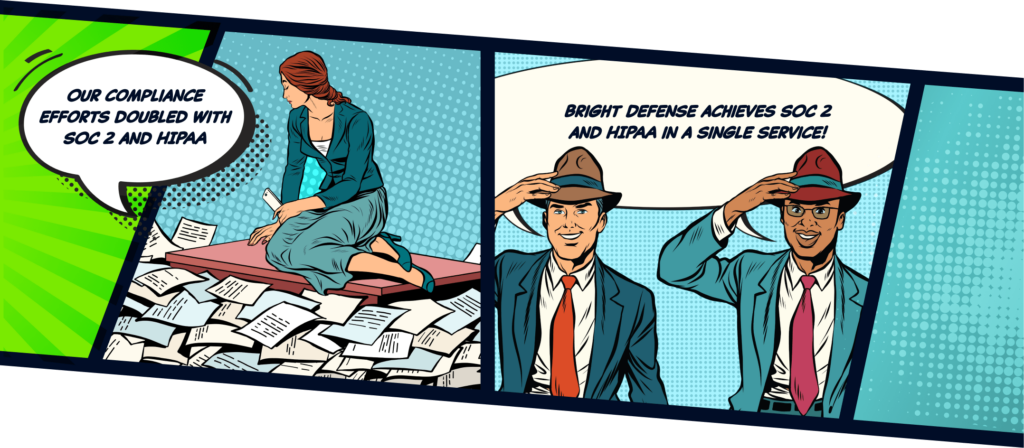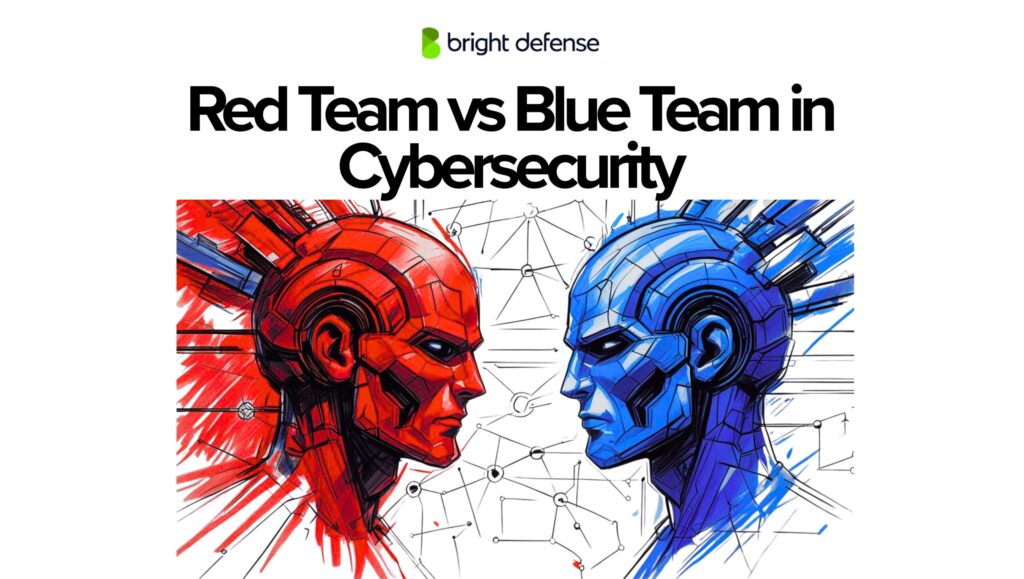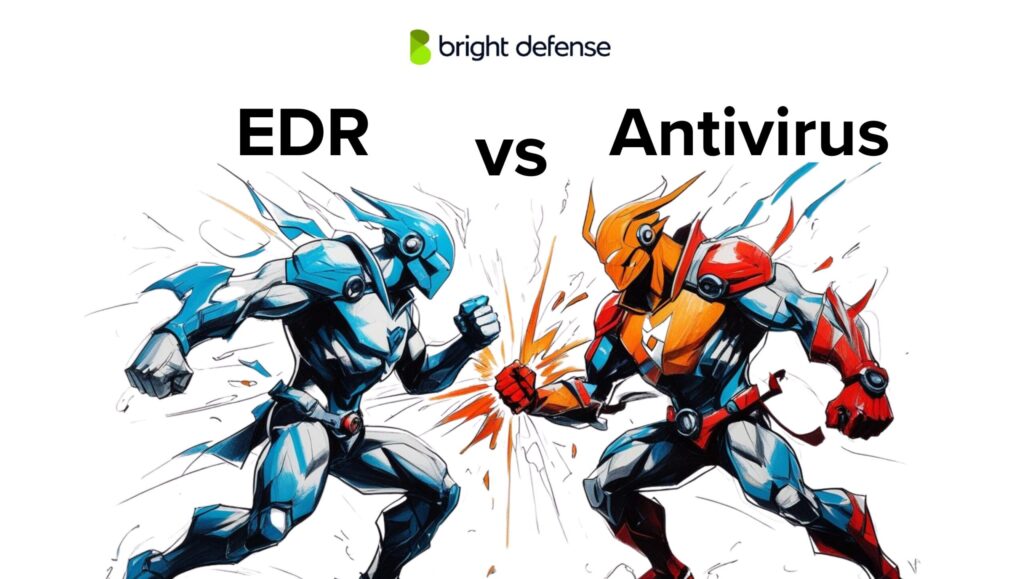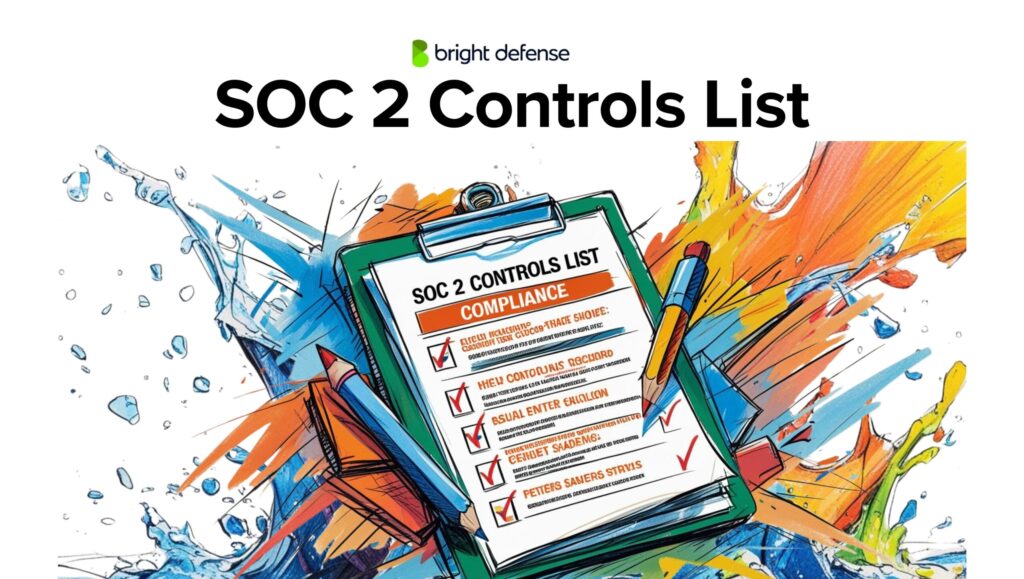
John Minnix - Compliance Strategist
June 28, 2025
HIPAA Compliance For Startups
Introduction
Navigating the complex regulations of the Health Insurance Portability and Accountability Act (HIPAA) can seem daunting. This is especially for startups. HIPAA compliance for startups is a critical topic that requires careful attention to ensure that these new entities not only comply with stringent federal laws but also protect the sensitive health information of their clients. In this blog post, we will explore what HIPAA entails, why it is particularly significant for startups, and the serious consequences of non-compliance.
HIPAA regulations set the standard for protecting sensitive patient data. Any company that deals with protected health information (PHI) must ensure that all the required physical, network, and process security measures are in place and followed. For startups, which are typically characterized by their fast growth and limited resources, the challenge of maintaining HIPAA compliance can seem overwhelming. However, the risk of not adhering to these regulations can lead to severe penalties, including heavy fines and loss of reputation.
In the following sections, we will dissect the components of HIPAA. We then outline the compliance requirements and provide a step-by-step guide tailored to help startups navigate this complex landscape efficiently. Whether you are just beginning to sketch out your business plan or looking to refine your existing practices, understanding HIPAA compliance is essential for safeguarding your business’s future and the privacy of your patients.
Understanding HIPAA
Before diving into the specifics of HIPAA compliance, it’s important for startups to grasp the foundational concepts and regulations encompassed by the Health Insurance Portability and Accountability Act. This section will break down key terms, the primary components of the HIPAA rules, and recent amendments that might impact how you handle protected health information.
Key HIPAA Compliance Terms
- Protected Health Information (PHI): This includes any information held by a covered entity which concerns health status, provision of health care, or payment for health care that can be linked to an individual. PHI is not limited to medical records but includes any part of a patient’s medical record or payment history.
- Covered Entities: Typically, these are providers such as doctors, clinics, psychologists, dentists, chiropractors, nursing homes, and pharmacies. However, health plans and healthcare clearinghouses also fall under this category.
- Business Associates: These are persons or entities that perform certain functions or activities that involve the use or disclosure of PHI on behalf of, or provides services to, a covered entity. Examples include billing companies, transcription services, and SaaS providers.
The Privacy Rule
The HIPAA Privacy Rule establishes national standards for the protection of PHI held by covered entities and their business associates. It requires appropriate safeguards to protect the privacy of personal health information. It also sets limits and conditions on the uses and disclosures that may be made of such information without patient authorization. Finally, it gives patients rights over their health information, including rights to examine and obtain a copy of their health records, and to request corrections.
Here are the key compliance aspects startups need to understand:
- Patient Rights: The rule grants patients rights concerning their health information, including the right to access, amend, and receive an accounting of disclosures of their health records.
- Minimum Necessary Use and Disclosure: Covered entities must make reasonable efforts to use, disclose, and request only the minimum amount of protected health information needed to accomplish the intended purpose.
- Notices of Privacy Practices (NPP): Covered entities must provide a notice that describes how the entity uses and shares patient PHI and the patient’s rights regarding their personal information. Startups must ensure these notices are clear, accessible, and periodically updated.

The Security Rule
The Security Rule specifies a series of administrative, physical, and technical safeguards for covered entities and their business associates to use to assure the confidentiality, integrity, and availability of electronic protected health information (ePHI). Administrative safeguards involve policies and procedures designed to clearly show how the entity will comply with the act. Physical safeguards are set to secure the entity’s electronic information systems and related buildings and equipment from natural and environmental hazards, and unauthorized intrusion. Technical safeguards involve the technology and the policy and procedures for its use that protect electronic PHI and control access to it.
Let’s breakdown each of the HIPAA safeguard rules in greater detail.
- Administrative Safeguards: Policies and procedures designed to show how the entity complies with the Act, including:
- Conducting risk assessments
- Developing a risk management policy
- Implementing employee training programs
- Appointing a security official responsible for developing and implementing security policies
- Physical Safeguards: Measures to protect electronic systems, equipment, and data from physical threats and unauthorized intrusion, which include:
- Facility access controls
- Workstation and device security
- Policies for proper handling and storage of hardware and electronic media
- Technical Safeguards: Technology and related policies and procedures that control access to ePHI and protect communications containing PHI transmitted electronically, such as:
- Access control to allow only authorized persons to access ePHI
- Audit controls to record and examine activity in systems that contain or use ePHI
- Integrity controls to ensure ePHI is not improperly altered or destroyed
- Transmission security to guard against unauthorized access to ePHI that is transmitted over an electronic network

The Breach Notification Rule
The HIPAA Breach Notification Rule requires covered entities and their business associates to provide notification following a breach of unsecured PHI. A breach is generally an impermissible use or disclosure under the Privacy Rule that compromises the security or privacy of PHI The notification requirements differ based on whether the breach affects more than 500 individuals or fewer than 500 individuals.
Startups must understand the following key aspects:
- Breach Assessment: Determining what constitutes a breach and conducting a risk assessment to establish the likelihood that PHI has been compromised.
- Notification Requirements: Timelines for notification (typically within 60 days of discovering the breach), details to include in the notification, and methods of notification, depending on the number of individuals affected.
Recent Amendments and Updates
It’s important for startups to stay updated with recent changes to HIPAA regulations. For example, updates have expanded the obligations of business associates, enhanced patient rights to electronic copies of their PHI, and increased penalties for non-compliance based on the level of negligence.
Understanding these foundational aspects of HIPAA will help startups recognize their roles and responsibilities under the law. This knowledge is crucial as you develop internal policies and procedures to ensure compliance and protect patient information effectively.

Achieving HIPAA Compliance: A Step-by-Step Guide for Startups
Achieving compliance with HIPAA can appear complex and daunting for startups, especially those with limited resources. This section offers a structured, step-by-step guide to streamline the compliance process, from initial assessment to ongoing management.
Assessing HIPAA Compliance Needs
- Conduct a Comprehensive Risk Analysis: Identify all areas where your startup interacts with PHI. Evaluate the potential risks and vulnerabilities to the privacy, security, and integrity of PHI. Compliance consultants, like Bright Defense, can be a great resource for risk analysis.
- Determine Your Status as a Covered Entity or Business Associate: Understand whether HIPAA directly applies to your operations, and define the scope of your compliance requirements.
Creating a Compliance Plan
- Designate a Compliance Officer: Assign a dedicated individual (or team, depending on your size) responsible for developing, implementing, and maintaining your HIPAA compliance efforts. Many startup companies will outsource compliance services to a vCISO or consultant. Bright Defense focuses on HIPAA Compliance for startups, and can assist in this effort.
- Develop and Implement Policies and Procedures: Create clear, documented guidelines that comply with the Privacy and Security Rules. These should cover aspects such as PHI handling, employee training, and incident response strategies.
- Employee Training and Awareness: Regularly train all employees on HIPAA regulations and company-specific privacy policies. Ensure they understand their roles and responsibilities in protecting PHI. Security awareness training, like the solution offered by KnowBe4, can help automate and track progress.
Implementing Necessary Safeguards
- Administrative Safeguards: Establish internal management procedures to guard data privacy and security. This includes employee screening, data access controls, and a sanction policy for non-compliance.
- Physical Safeguards: Secure your physical premises and equipment from unauthorized access and environmental hazards. Control access to electronic media and workstations.
- Technical Safeguards: Use technology to control access to electronic PHI. Implement encryption, secure communication channels, and regular security updates.
Regular Auditing and Updating of HIPAA Practices
- Conduct Regular Audits: Schedule and conduct audits to ensure that all HIPAA policies are being followed and are effective. Identify any compliance gaps or new vulnerabilities.
- Update Compliance Measures as Needed: Technology and regulations evolve, so regularly update your compliance plans to reflect new legal requirements and technological advancements. Re-train employees if changes are made to policies or procedures.
Documenting Compliance Efforts
- Maintain Records of Compliance Activities: Keep detailed records of all compliance activities, including training sessions, audits, and policy updates. These documents can be critical in the event of a government audit or investigation. Compliance automation software can add tremendous value in this area and lower the cost of getting HIPAA compliant.
By following these steps, startups can not only achieve HIPAA compliance but also maintain it as an ongoing process. This approach helps protect patient information, build trust with users and partners, and avoid potential penalties for non-compliance.

A Focus on Business Associates: SaaS and IT Providers
For startups in the software as a service (SaaS) and information technology (IT) sectors that provide services to healthcare providers, understanding the role of a business associate under HIPAA is crucial. This section delves into why HIPAA compliance is vital for SaaS and IT providers and how they can navigate their responsibilities.
The Role of SaaS and IT Providers as Business Associates
Under HIPAA, a business associate is any organization or person who performs activities or functions that involve the use or disclosure of protected health information (PHI) on behalf of, or provides services to, a covered entity such as a healthcare provider. This includes SaaS companies offering cloud-based electronic health records solutions, billing platforms, or any other services handling PHI. IT providers that manage data security or storage for healthcare entities also fall into this category.
Why HIPAA Compliance is Crucial for SaaS and IT Providers
- Legal Obligation: As business associates, SaaS and IT providers are legally bound by HIPAA rules to protect PHI. Failure to comply can result in legal penalties, including heavy fines.
- Trust and Credibility: Compliance is not just about avoiding penalties; it’s crucial for building trust with healthcare clients. Providers that demonstrate strict adherence to HIPAA are more likely to be chosen by healthcare providers, as compliance is a top priority for them.
- Data Security: Given the sensitivity of health information, the integrity and security of PHI must be maintained at all times. This is particularly important in an era where cyber threats are increasingly sophisticated. Implementing robust security measures not only protects data but also supports business continuity.
HIPAA Compliance Requirements for SaaS and IT Providers
- Risk Analysis and Management: Conducting regular risk assessments to identify vulnerabilities in the handling of PHI and implementing risk management strategies to mitigate these risks.
- Privacy and Security Measures: Adhering to both the Privacy and Security Rules of HIPAA. This includes encrypting PHI, ensuring secure data transmission, and implementing strong access controls.
- Breach Notification: In case of a data breach involving PHI, SaaS and IT providers are required to notify the covered entity promptly. The covered entity will then handle further breach notification procedures under HIPAA guidelines.
Developing a Compliance Strategy
- Employee Training: Training all employees on HIPAA compliance, especially those who directly handle or have access to PHI.
- Documentation and Policies: Developing clear policies and procedures for all aspects of PHI handling and ensuring these documents are regularly reviewed and updated.
- Partnering with Compliance Experts: Especially for startups without extensive legal or compliance expertise, partnering with HIPAA compliance experts can help ensure that all aspects of the regulations are being correctly implemented and maintained.
For SaaS and IT providers, being a business associate under HIPAA is a significant responsibility. By embracing this role and its obligations, companies ensure compliance and enhance their value proposition to potential healthcare clients.

Common HIPAA Compliance Challenges and Solutions
Startups often face a variety of challenges when striving to achieve HIPAA compliance. Understanding these common hurdles and knowing how to overcome them can prevent costly mistakes and ensure ongoing compliance. Here are some typical challenges and practical solutions:
Limited Resources
Challenge: Startups often operate with limited financial and human resources, making comprehensive compliance efforts difficult.
Solution: Prioritize the most critical compliance aspects and consider using affordable cloud-based solutions that offer built-in security features compliant with HIPAA standards. Additionally, outsourcing tasks to HIPAA-compliant third-party service providers can help manage costs and complexity.
Lack of Expertise
Challenge: Many startups lack in-house expertise in HIPAA regulations.
Solution: Invest in training for key personnel or hire a part-time compliance officer. Engaging a HIPAA consultant can also provide the necessary guidance tailored to the startup’s specific needs.
Keeping Up with Regulations
Challenge: HIPAA regulations can change, and staying updated can be daunting.
Solution: Subscribe to updates from authoritative sources like the U.S. Department of Health and Human Services (HHS). Joining professional organizations and attending relevant workshops and seminars can also help.
Technology Management
Challenge: Implementing the necessary technical safeguards can be technically complex and expensive.
Solution: Utilize secure and compliant software solutions designed for small healthcare providers. Regularly review and update security measures to handle emerging threats.
By recognizing these challenges and implementing the suggested solutions, startups can better manage their HIPAA compliance responsibilities. This reduces risks and enhancing patient trust.

Conclusion
Achieving and maintaining HIPAA compliance is not merely a regulatory requirement; it is a crucial component of building trust and credibility in the healthcare industry. For startups, the journey toward compliance should be viewed as an integral part of the business strategy, vital for protecting patient information and securing business operations.
As we have explored in this guide, understanding HIPAA’s requirements, adopting systematic compliance strategies, leveraging technology and expert advice, and staying informed about regulatory changes are all essential practices. These efforts will safeguard not only your patients’ sensitive information but also the integrity and reputation of your startup.
Remember, HIPAA compliance is an ongoing process that evolves with your business and the regulatory landscape. Proactively managing your compliance activities will help avoid potential fines and foster a culture of privacy and security within your organization.
We encourage all healthcare startups to take these steps seriously, beginning their compliance journey with a clear plan and dedication to continuous improvement. The investment in HIPAA compliance is an investment in your company’s future and in the health and trust of those you serve.
Bright Defense Delivers HIPAA Compliance for Startups
If your startup is looking to become HIPAA compliant, Bright Defense can help. We focus on HIPAA for startups. Our monthly engagement model will deliver a robust cybersecurity program that will exceed HIPAA requirements. Our managed service includes a compliance automation platform which increases efficiency and lowers the cost of compliance.
Additionally, we can help your startup company achieve other common compliance frameworks, including SOC 2, ISO 27001, PCI, and CMMC. Get started on your compliance journey today with Bright Defense!

HIPAA Compliance for Startups FAQ
What is HIPAA Compliance?
HIPAA compliance refers to adherence to the stringent rules set by the Health Insurance Portability and Accountability Act (HIPAA), a federal law designed to protect patient health information. Ensuring HIPAA compliance is crucial for healthcare providers, including startups in the healthcare sector, to protect sensitive data and avoid legal penalties.
How Does HIPAA Apply to Startups?
HIPAA applies to startups if they qualify as either a “covered entity” or a “business associate.” A covered entity is a healthcare provider, health plan, or healthcare clearinghouse that handles protected health information (PHI). A business associate is any service provider who has access to PHI through their work for a covered entity. HIPAA for startups means ensuring all aspects of the regulation are met, from data backup to employee training.
What Steps Should Startups Take for HIPAA Compliance?
To be HIPAA compliant, startups should perform a self-assessment to understand their exposure to PHI and establish a comprehensive HIPAA compliance plan. This includes implementing strict rules and procedures for handling PHI, training employees, ensuring secure data backup, and more. Regular audits should be conducted to maintain compliance.
Are There Specific Security Measures a Startup Should Implement?
HIPAA compliance requires startups to implement technical, physical, and administrative safeguards. These might include secure systems for data backup, encryption of PHI, controlled access to PHI, and other security measures to protect patient information against unauthorized access or breaches.
What Happens If a Startup Violates HIPAA Rules?
Violating HIPAA rules can result in severe consequences for startups, including substantial fines, legal actions, and damage to the company’s reputation. Penalties depend on the nature of the violation and the perceived negligence involved. It is crucial for startups to understand these risks and implement robust HIPAA compliance measures.
How Important Is Employee Training in HIPAA Compliance?
Employee training is vital for HIPAA compliance, especially for startups. Training ensures that all employees understand the strict rules of HIPAA and their personal responsibilities in protecting PHI. Regular training sessions help prevent violations and foster a culture of compliance within the organization.
Can a Startup Handle HIPAA Compliance Internally, or Should It Outsource?
Startups can handle HIPAA compliance internally if they have the expertise and resources. However, many choose to outsource to HIPAA compliant consultants or specialized firms to ensure all aspects of compliance are covered. This can be particularly beneficial for startups lacking in-house expertise in the complex requirements of HIPAA.
By addressing these questions, healthcare startups can better understand the scope and importance of HIPAA compliance and take informed steps to ensure they meet all federal laws and regulations concerning the protection of PHI.
Get In Touch



